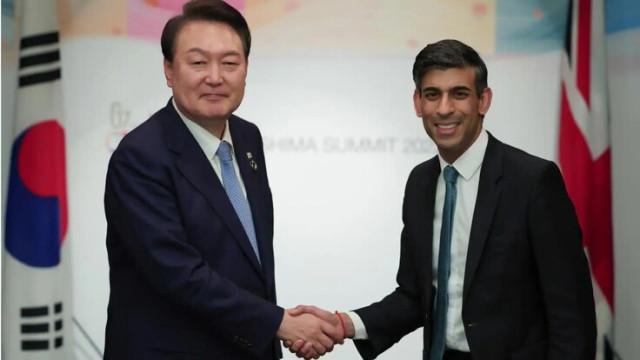South Korea and the United Kingdom will co-host the second global AI summit in Seoul this week, as the breathtaking pace of innovation since the first AI summit in November leaves governments scrambling to address a growing array of risks.
UK Prime Minister Rishi Sunak and South Korean President Yoon Suk Yeol will oversee a virtual summit on Tuesday, amid calls for better regulation of artificial intelligence despite sharp disagreements over how the technology may affect humanity.
"Although positive efforts have been made to shape global AI governance, significant gaps still remain," Sunak and Yoon said in a joint opinion article published in the UK's i newspaper and South Korea's JoongAng Ilbo, entitled "Only global AI standards can stop a race to the bottom."
The November event was billed as the AI Safety Summit, but the scope of the challenges has expanded since then. The meetings beginning Tuesday are now billed as the AI Seoul Summit and will discuss three priorities: AI safety, innovation, and inclusion, according to the summit's website.
"Risks such as large-scale labour market impacts, AI-enabled hacking or biological attacks, and society losing control over general-purpose AI could emerge," although there is debate about the likelihood, stated a global AI safety report released on Friday.
"But... it will be the decisions of societies and governments that will determine the future of AI," said the report backed by experts from more than 30 countries.
The report acknowledges the widening front of risks from the rapidly evolving technology, including existential risks to humanity, AI inequality, data scarcity, use of copyright material, and the environmental impact due to the vast amount of electricity used by AI data centres.
During the UK-hosted November summit, Tesla's Elon Musk and OpenAI CEO Sam Altman interacted with some of their fiercest critics, while China co-signed the "Bletchley Declaration" on collectively managing AI risks alongside the United States and others.




















